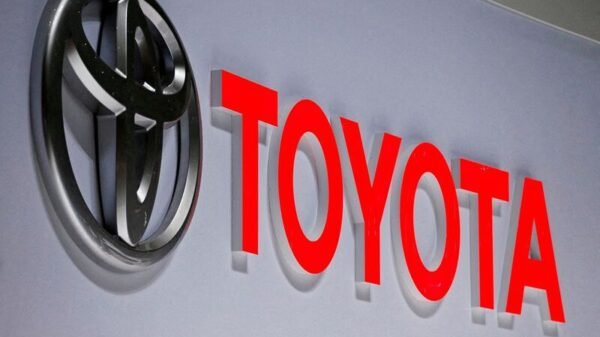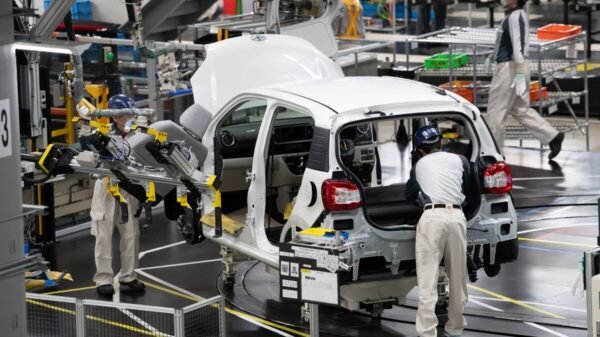Industry Minister Yasutoshi Nishimura announced Friday that Toyota (7203.T) would get up to $841 million in subsidies to invest in local EV battery production.
Toyota laid out a comprehensive plan for new technologies and a dramatic factory overhaul this week, offering the strongest hint of its aim to gain a larger piece of the fast-growing battery EV market, where rivals like Tesla (TSLA.O) have widely outsold it.
“As the international competition for storage batteries is intensifying, capital investment is also becoming more intense,” Nishimura told reporters during a media briefing.
“Large-scale investments by Toyota group and so on will hopefully lead to a significant strengthening of our country’s supply chain for storage batteries,” he said.
A spokeswoman said that Toyota’s contribution was limited to the ministry’s disclosures.
The government stated mass manufacture of the batteries would begin in stages in October 2026.
Under an economic security statute, Japan has recognized energy storage batteries, including automobile batteries, as vital and allocated 331.6 billion yen in its second supplementary budget to promote their supply and development, according to METI.
METI said the government would invest 117.8 billion yen ($841 million) of 330 billion yen in next-generation solid-state and lithium iron phosphate batteries.
Toyota and three battery development partners, including Toyota Industries (6201.T), will get the subsidies.
Nishimura said the investment would increase Japan’s annual production capacity to 45 gigawatt hours (GWh), and the government wants 150 GWh by 2030.
In April, Japan’s No.2 manufacturer Honda Motor (7267.T), and battery maker GS Yuasa (6674.T) announced the construction of a new plant with a 20-GWh production capacity.












































Comment Template